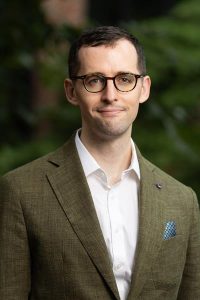 | Dr. David C. Logan is Assistant Professor of Security Studies at the Fletcher School of Law and Diplomacy at Tufts University. His research focuses on nuclear weapons, arms control, deterrence, and the U.S.-China security relationship. He previously taught in the National Security Affairs Department at the Naval War College and served as a Stanton Nuclear Security Fellow with the MIT Security Studies Program and a Fellow with the Princeton Center for International Security Studies, where he was also Director of the Strategic Education Initiative. Dr. Logan has conducted research for the Center for the Study of Chinese Military Affairs at National Defense University and the Defense Threat Reduction Agency. He has published in International Security, Journal of Strategic Studies, Georgetown University Press, National Defense University Press, Foreign Affairs, Los Angeles Times, and War on the Rocks, among other venues. He holds a B.A. from Grinnell College and an M.P.A., M.A., and Ph.D. from Princeton University. |
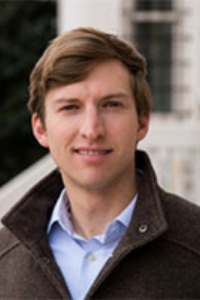 | Christopher Miller is Professor of International History, where his research focuses on technology, geopolitics, economics, international affairs, and Russia. He is author of Chip War: The Fight for the World’s Most Critical Technology, a geopolitical history of the computer chip. He is the author of three other books on Russia, including Putinomics: Power and Money in Resurgent Russia; We Shall Be Masters: Russia’s Pivots to East Asia from Peter the Great to Putin; and The Struggle to Save the Soviet Economy: Mikhail Gorbachev and the Collapse of the USSR. He has previously served as the Associate Director of the Brady-Johnson Program in Grand Strategy at Yale, a lecturer at the New Economic School in Moscow, a visiting researcher at the Carnegie Moscow Center, a research associate at the Brookings Institution, and as a fellow at the German Marshall Fund’s Transatlantic Academy. He received his PhD and MA from Yale University and his BA in history from Harvard University. For more information, see www.christophermiller.net. |
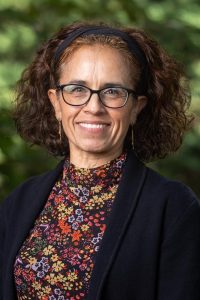 | Marcia Moreno-Báez is a Research Professor in Geospatial Technology at the Fletcher School of Law and Diplomacy. She also serves as an associate advisor to Andanza LLC, a consultancy providing support to individuals, groups, collectives, and institutions on their path to increasing environmental and human well-being. She is a collaborating professor at the NIPPON Foundation Ocean Nexus and a board member of the Maine Big Night, a non-profit organization committed to protecting and studying amphibians. She is the co-founder and advisor of dataMares, an initiative to facilitate access to scientific knowledge and data, and the co-founder of Watershed Management Group, a non-governmental organization aimed at developing community-based solutions to ensure the long-term prosperity of the environment. Marcia has more than 25 years of experience in the field of geospatial technology, with diverse professional practices in government, the private sector, NGOs, and academia. Her experience also involves facilitating the practical use of science and technology for a spatially literate workforce and supporting scientific research and policy in the US, Mexico, and Latin America. She is currently a member of the Center for the International Environment and Resources Policy (CIERP), the Climate Policy Lab, and the Henry J. Leir Institute for Migration and Human Security at the Fletcher School of Diplomacy and Law. Marcia earned a Ph.D. from the University of Arizona and completed a postdoctoral fellowship at the Scripps Institution of Oceanography. She has two primary research areas: understanding the spatial distribution of impacts of environmental problems, resource extraction, and policies; and supporting applied research that bridges the common divides between social, economic, and environmental goals while creating opportunities for equity and justice through the participation of different sectors and stakeholders. She currently teaches classes on geospatial technology, focusing on using and developing geospatial methods across an array of applications, such as human security, economic development, humanitarian assistance, climate change, and natural resources management, in locations across the globe. |
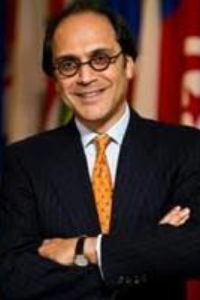 | Bhaskar Chakravorti is the Dean of Global Business at The Fletcher School at Tufts University – America’s oldest exclusively graduate school of global affairs — the founding Executive Director of Fletcher’s Institute for Business in the Global Context and founder and chair of Digital Planet, one of Fletcher’s flagship research programs that studies the impact of technology on lives and livelihoods around the world. Bhaskar founded the Institute in 2011 with the mission of “connecting the world of business with the world,” exploring issues at the intersection of business and global context, including geopolitics, technology, security, development, the environment and the human condition. Bhaskar serves on the Fletcher faculty as Professor of the Practice of International Business and is the Chair of the IDEA Council: Imagining a Digital Economy for All. He is the Chairman of the Advisory Board to the Mastercard Policy Center for the Digital Economy, served on the Global Future Council on Innovation for the World Economic Forum and is Nonresident Senior Fellow at the Brookings Institution, Senior Advisor for Digital Inclusion at the Mastercard Center for Inclusive Growth, a Senior Fellow at the Centre for Social and Economic Progress, an Advisory Board member for the Indian Institute of Public Policy and served on the Advisory Board of the UNDP’s Center for Private Sector in Development. Bhaskar has also founded and chairs the Digital Planet initiative at The Fletcher School, that follows the evolution of 90 countries as they transition from traditional to digitally intensive economies. Most recently, as part of this initiative, he has launched a multi-year initiative, Imagining a Digital Economy for All, IDEA 2030, which is investigating the role of data, digital technologies, artificial intelligence and applications as a force for inclusive growth, development and productivity. The first year of the research is entirely devoted to the study of the world operating by digital means during the COVID-19 pandemic. He also started the first all-digital degree program at Tufts and Fletcher. |
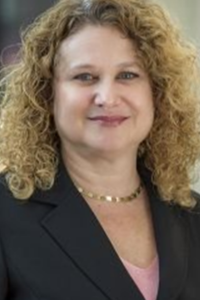 | Carolyn F. Gideon is Assistant Professor of International Communication and Technology Policy. She is also Director of the Hitachi Center for Technology and International Affairs. Gideon’s research focus is policy, access, and industry structure issues of information and communication technology. She has been a Fellow at the Belfer Center for Science and International Affairs and at the Center for Business and Government at Harvard Kennedy School, and a research affiliate with the MIT Program on Internet and Telecoms Convergence. Past experience includes Asst. Vice President of Parker/Hunter Incorporated, Manager of Manville Personal Injury Settlement Trust, and Consultant with Strategic Planning Associates (now Mercer Management Consulting). She is a member of the International Telecommunication Society, International Communications Association, Society for Benefit Cost Analysis, and President-Elect of the Transportation and Public Utility Group of the American Economic Association. |
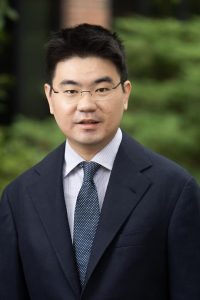 | Thomas Cao is Assistant Professor of Technology Policy at the Fletcher School of Law and Diplomacy. His research focuses on the intersection of technology and politics, examining topics such as the influence of information on political attitudes and behavior, the political economy and regulation of the information technology sector, the political implications of generative artificial intelligence, and the dynamics of political polarization and animosity. Methodologically, his work emphasizes causal inference, particularly in the context of survey experiments. Professor Cao earned his B.A., M.S., and Ph.D. from Stanford University and was a Rhodes Scholar at the Oxford Internet Institute.
|